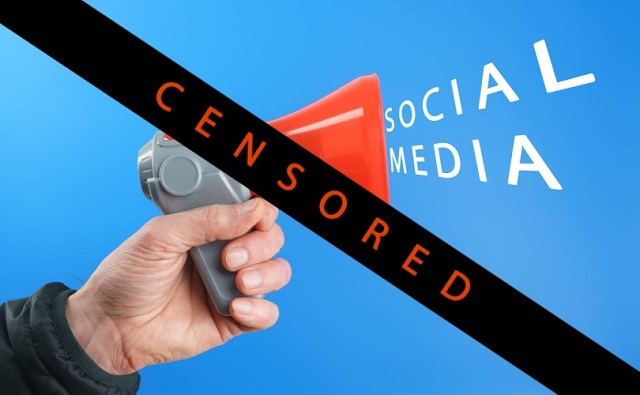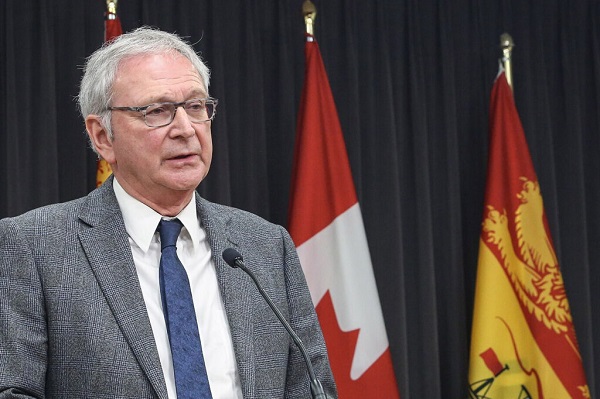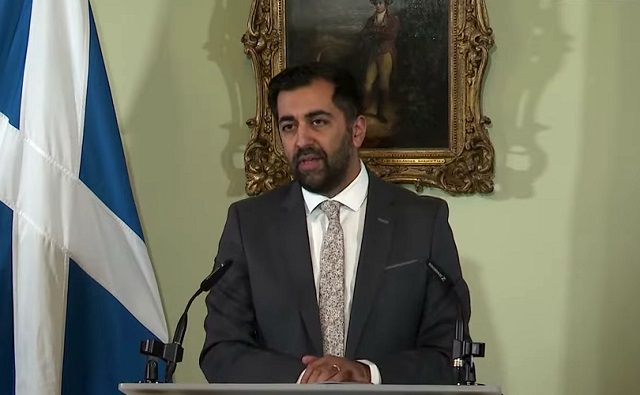COVID-19
CDC Quietly Admits to Covid Policy Failures

From the Brownstone Institute
BY
Instead of admitting policy error that the Covid vaccines do not much control virus spread, our public health administration doubled down, attempting then to compel vaccination on as many more people as could be threatened by mandates.
In so many words—and data—CDC has quietly admitted that all of the indignities of the Covid-19 pandemic management have failed: the masks, the distancing, the lockdowns, the closures, and especially the vaccines; all of it failed to control the pandemic.
It’s not like we didn’t know that all this was going to fail, because we said so as events unfolded early on in 2020, that the public health management of this respiratory virus was almost completely opposite to principles that had been well established through the influenza period, in 2006. The spread of a new virus with replication factor R0 of about 3, with more than one million cases across the country by April 2020, with no potentially virus-sterilizing vaccine in sight for at least several months, almost certainly made this infection eventually endemic and universal.
Covid-19 starts as an annoying, intense, uncomfortable flu-like illness, and for most people, ends uneventfully 2-3 weeks later. Thus, management of the Covid-19 pandemic should not have relied upon counts of cases or infections, but on numbers of deaths, numbers of people hospitalized or with serious long-term outcomes of the infection, and of serious health, economic, and psychological damages caused by the actions and policies made in response to the pandemic, in that order of decreasing priorities.
Even though numbers of Covid cases correlate with these severe manifestations, that is not a justification for case numbers to be used as the actionable measure, because Covid-19 infection mortality is estimated to range below 0.1% in the mean across all ages, and post-infection immunity provides a public good in protecting people from severe reinfection outcomes for the great majority who do not get serious “long-Covid” on first infection.
Nevertheless, once the Covid-19 vaccines were rolled out, with a new large wave of the Delta strain spreading across the US in July-August 2021 even after eight months of the vaccines taken by half of Americans, instead of admitting policy error that the Covid vaccines do not much control virus spread, our public health administration doubled down, attempting then to compel vaccination on as many more people as could be threatened by mandates. That didn’t work out too well as seen when the large Omicron wave hit the country during December 2021-January 2022 in spite of some 10% more of the population getting vaccinated from September through December of 2021.
A typical mandate example: in September 2021, Washington Governor Jay Inslee issued Emergency Proclamation 21-14.2, requiring Covid-19 vaccination for various groups of state workers. In the proclamation, the stated goal was, “WHEREAS, COVID-19 vaccines are effective in reducing infection and serious disease, and widespread vaccination is the primary means we have as a state to protect everyone…from COVID-19 infections.” That is, the stated goal was to reduce the number of infections.
What the CDC recently reported (see chart below), however, is that by the end of 2023, cumulatively, at least 87% of Americans had anti-nucleocapsid antibodies to and thus had been infected with SARS-CoV-2, this in spite of the mammoth, protracted and booster-repeated vaccination campaign that led to about 90% of Americans taking the shots. My argument is that by making policies based on number of infections a higher priority than ones based on the more serious but less common consequences of both infections and policy damages, the proclaimed goal of the vaccine mandate to reduce spread failed in that 87% of Americans eventually became infected anyway.

In reality, neither vaccine immunity nor post-infection immunity were ever able fully to control the spread of the infection. On August 11, 2022, the CDC stated, “Receipt of a primary series alone, in the absence of being up to date with vaccination* through receipt of all recommended booster doses, provides minimal protection against infection and transmission (3,6). Being up to date with vaccination provides a transient period of increased protection against infection and transmission after the most recent dose, although protection can wane over time.” Public health pandemic measures that “wane over time” are very unlikely to be useful for control of infection spread, at least without very frequent and impractical revaccinations every few months.
Nevertheless, infection spread per se is not of consequence, because count of infections is not and should not have been the main priority of public health pandemic management. Rather, the consequences of the spread and the negative consequences of the policies invoked should have been the priorities. Our public health agencies chose to prioritize a failed policy of reducing the spread rather than reducing the mortality or the lockdown and school and business closure harms, which led to unnecessary and avoidable damage to millions of lives. We deserved better from our public health institutions.
Republished from the author’s Substack
COVID-19
Elon Musk-backed doctor critical of COVID response vows appeal after court sides with medical board
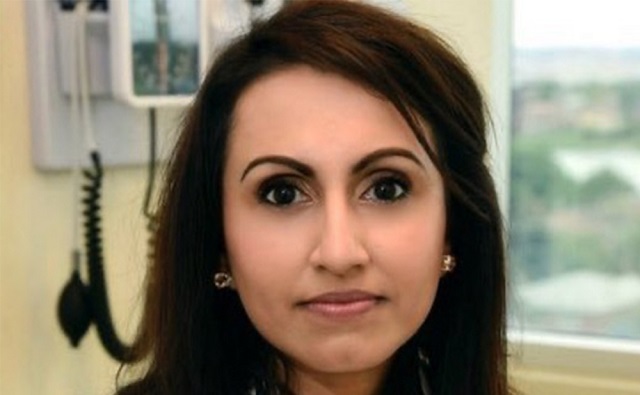
From LifeSiteNews
One of Gill’s “controversial” posts read, “If you have not yet figured out that we don’t need a vaccine, you are not paying attention. ”
A Canadian physician who challenged her medical regulator after it placed “cautions” against her for speaking out against draconian COVID mandates on social media has lost a court battle, but with the help of her Elon Musk-backed legal team she has vowed to appeal the ruling.
The case concerns Dr. Kulvinder Kaur Gill, an Ontario pediatrician who has been embroiled in a legal battle with the College of Physicians and Surgeons of Ontario (CPSO) for her anti-COVID views posted on X (formerly Twitter) in 2020. As reported by LifeSiteNews, her case received the support of billionaire Tesla and X owner Elon Musk, who pledged in March to back her financially.
One of Gill’s “controversial” posts read, “If you have not yet figured out that we don’t need a vaccine, you are not paying attention. #FactsNotFear.”
The Divisional Court decision against Gill dated May 7, 2024, concluded, “When the College chose to draw the line at those tweets which it found contained misinformation, it did so in a way which reasonably balanced Dr. Gill’s free speech rights with her professional responsibilities.”
“In other words, its response was proportionate,” noted the ruling.
Gill’s lawyer, Lisa Bildy with Libertas Law, stated in a press release sent to LifeSiteNews that the “Court declined to quash the ‘cautions’ orders, finding that the ‘screening committee’ of the CPSO was sufficiently alert to the Charter infringement of Dr. Gill’s speech, such that its decisions were within the range of reasonable outcomes.”
“Dr. Gill had argued, in two factums,” noted Bildy, which can be found here and here , and filed in the companion court applications, that “her statements were not ‘verifiably false.’”
Bildy expressed that Gill had provided the College with “ample evidence in 2020 to support her position against lockdowns,” but was sanctioned “because they went against the College’s guidance that doctors should not express opinions contradicting government or its public health edicts.”
Gill’s court challenge against the CPSO began last month, with Bildy writing at the time that the College’s “decisions were neither reasonable nor justified and they failed to engage with the central issues for which Dr. Gill was being cautioned.”
She argued that Gill had a “reasonable scientific basis” for her posts, noting that the previous decision made against Gill targeted her for opposing the mainstream COVID narrative.
“The decision starts with the premise that doctors have to comply,” said Bildy, warning that censoring doctors would have a “chilling effect” on free speech.
Bildy noted that in its ruling, the court “disagreed” with Gill’s challenge, “stating that this invited a reweighing of the evidence.”
The court also ordered that Gill pay the CPSO $6,000 in legal costs.
Gill is a specialist practicing in the Greater Toronto area, and has extensive experience and training in “pediatrics, and allergy and clinical immunology, including scientific research in microbiology, virology and vaccinology.”
Last September, disciplinary proceedings against her were withdrawn by the CPSO. However, last year, Gill was ordered to pay $1 million in legal costs after her libel suit was struck down.
The CPSO began disciplinary investigations against Gill in August 2020.
Gill to appeal recent court ruling with support from Musk’s X
The court’s ruling asserted that the CPSO panel members consisted of “three physicians with highly relevant expertise that they were able to bring to bear when assessing the scientific and medical information before them, expertise that this court does not have.”
Bildy noted that in fact, the CPSO panel consisted of “three surgeons and a general member of the public who had deferred to the ‘expertise’ of government’s public health arm.”
The court ruling also dismissed Gill’s arguments that publishing the “cautions on her public register and disseminating a notice about the cautions to hospitals and regulators across the continent was punitive and had a chilling effect on one side of a debate.”
“The Court opted to align with other Divisional Court decisions in stating that the cautions were not a finding of professional misconduct but were merely a remedial measure. This is despite the fact that cautions have, only in recent years, become a public rebuke rather than a private ‘correction’ of a professional by their peers. This significant change has not yet been grappled with by the Ontario Court of Appeal,” noted Bildy.
Bildy said that Gill intends to “seek leave to appeal to the Ontario Court of Appeal with the support of X Corp., since her posts were made on the X platform which supports free expression and dialogue, even on contentious issues and particularly on matters of scientific and medical importance.”
Gill noted on X Tuesday that her “notice of motion for leave to appeal will be filed” next week “to begin process.”
She also thanked Musk and X for supporting her legal cause.
Gill had said that she had “suddenly” found herself going “against the narrative,” and was then “seen as a black sheep and as someone who should be shunned.”
Many Canadian doctors who spoke out against COVID mandates and the experimental mRNA injections have been censured by their medical boards.
Earlier this month, Elon Musk’s X announced that it will fund the legal battle for another Canadian doctor critical of COVID lockdowns, Dr. Matthew Strauss, an Ontario critical care physician and professor, against his former employer Queen’s University after it forced him to resign.
In an interview with LifeSiteNews at its annual general meeting in July 2023 near Toronto, canceled doctors Mary O’Connor, Mark Trozzi, Chris Shoemaker, and Byram Bridle were asked to state their messages to the medical community regarding how they have had to fight censure because they have opinions contrary to the COVID mainstream narrative.
COVID-19
Healthcare workers obtain partial win against Bonnie Henry in BC Supreme Court
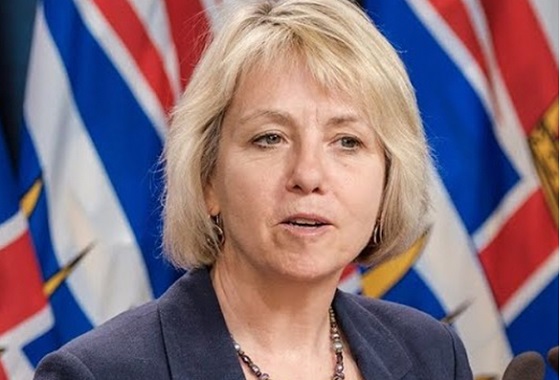
News release from the Justice Centre for Constitutional Freedoms
The Justice Centre for Constitutional Freedoms is pleased to announce that the British Columbia Supreme Court has remitted back to the provincial health officer the issue of whether remote working and administrative health care workers must take the Covid vaccine as a condition of being able to work in a health care system that the BC government claims is grossly understaffed.
While the Justice Centre is disappointed that the court upheld the Covid vaccine mandate on BC healthcare workers, this decision is viewed as a substantial win for those remote-working and administrative healthcare workers who lost their jobs due to an unfair Covid vaccine mandate and other Health Orders put in place by BC provincial health officer Bonnie Henry, starting in November 2021. The court’s decision was released on Friday, May 10, 2024, by Justice Simon Coval in Vancouver.
The Justice Centre provided for lawyers to represent the healthcare workers, who filed their Petition to the Court on March 16, 2022. Oral arguments were presented November 20 to December 1, 2023, and December 18 to December 21, 2023. The petitioners argued that the orders violated their Charter rights, section 2(a) freedom of conscience and religion, section 7 right to life, liberty and security of the person, and section 15 equality rights.
The case is formally known as Tatlock, Koop, et al. v. BC and Dr. Bonnie Henry. More background is available at this link.
Charlene Le Beau, co-counsel for the petitioners, says, “This case was a Judicial Review, which means the court had to determine whether Dr. Bonnie Henry acted reasonably in making the Covid vaccine a condition of employment. We are disappointed with the court finding that Dr. Henry acted reasonably, but pleased with the court also finding that the application of the Orders to remote-working and administrative workers went too far. As a result, the court remitted the issue back to Dr. Henry so that, in light of the reasons for judgment, she can consider whether to accept requests for exemption to the vaccine for those groups of workers. This is a positive result for BC nurses, doctors and other health care workers.”
-

 COVID-191 day ago
COVID-191 day agoMore victories for freedom as ArriveCAN charges dropped and fines reduced
-
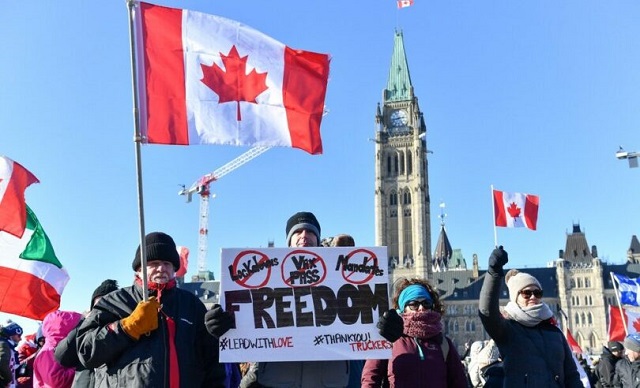
 COVID-191 day ago
COVID-191 day agoTrudeau government only sought legal advice after Emergencies Act was invoked, records indicate
-

 Brownstone Institute2 days ago
Brownstone Institute2 days agoThe WHO’s Proposed Pandemic Agreements Worsen Public Health
-

 Alberta1 day ago
Alberta1 day agoProvince announces next step to revamped health care system
-
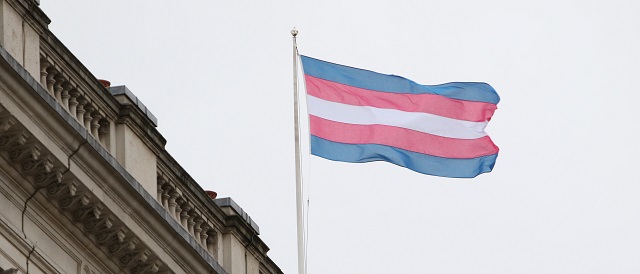
 Health2 days ago
Health2 days agoTHE WPATH TAPES: Behind-The-Scenes Recordings Reveal What Top Gender Doctors Really Think About Sex Change Procedures
-
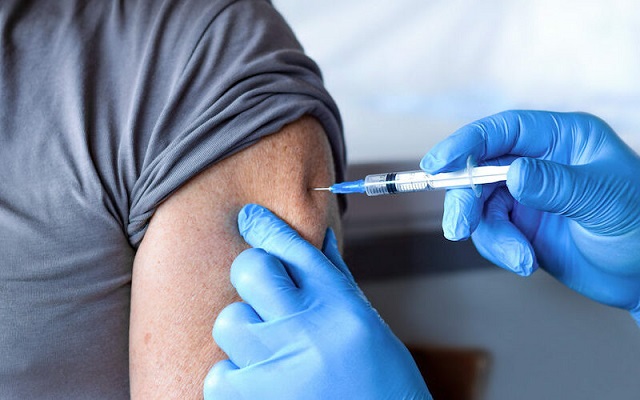
 COVID-192 days ago
COVID-192 days agoTrudeau’s public health agency recommends another experimental COVID booster
-
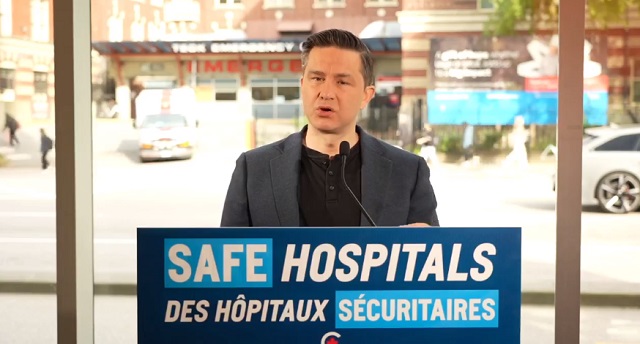
 Addictions2 days ago
Addictions2 days agoPoilievre attacks decriminalization of hard drugs with Safe Hospitals Act
-

 Uncategorized2 days ago
Uncategorized2 days agoRCMP recruitment failure has Alberta advocacy group calling for Provincial Police Service



